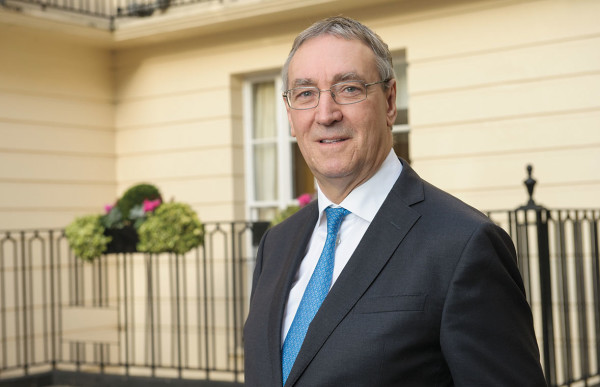

Gerrit Smit, partner and head of equity management at Stonehage Fleming Investment Management, believes the two companies’ differences have been to the new firm’s benefit.
He says: “In terms of the offerings it was a really good fit in the sense that while both [companies] have got what I would call a multi-manager offering in all asset classes, Fleming had a pure direct bond management capability where it manages bonds directly for clients, while Stonehage had a direct equity offering to buy equities directly for clients rather than go through other funds. That synergy is very clear. It is now two years old and working really well.”
Mr Smit’s background is mainly institutional, having previously worked for a life insurance company. But he has also gone “through the school of doing company research and equity analysis in all different sectors” before becoming an investment strategist working on macroeconomic issues and asset allocation.
He notes his interest in his current role “originates from all of that research experience, but also in the corporate actions where I got involved in physically buying businesses and being involved in restructuring the firms. And also forming opinions of what is right and what is wrong in a business and how to address that.”
Mr Smit says he formulated the investment philosophy he now applies from these experiences.
Stonehage Fleming is known as a family office, but has targeted advisers more recently via a global equity offering. The Stonehage Fleming Global Best Ideas Equity fund is based on work started in April 2009 in the midst of the credit crunch, when the team formed the opinion “that if something survives the crisis, then it is going to be very high-quality solid businesses”. Mr Smit explains:
“We started [implementing our strategy] in what we would call segregated accounts for ultra high net worth clients that have proven to be very successful. Two years later we started laying the foundations for this in the fund structure. The fund is now exactly three years old.
“We look for a competitive edge in a business, and along with that we make absolutely sure about the valuation to ensure we don’t pay too much for a business, because that’s not going to give us the necessary reward later. That is the background of how we got to the philosophy of owning what we perceive to be the world’s best businesses.”
He says it is a strategy of identifying those businesses and buying them at the right valuation with the intention to hold the business for the long term, rather than trading stocks. “We have only one philosophy and one product and that’s all we do. We don’t have different offerings and different mandates.”
Mr Smit points out that as a portfolio manager, it is a highlight “if what you try to [achieve] delivers in the end and your clients are comfortable and happy”. He says: “That obviously doesn’t happen every day, it’s something that builds up over time. We have been fortunate with fantastic support from clients and investors that understand business exceptionally well and that clearly buy into this philosophy of holding outstanding companies and not speculating in it.”
Delivering on expectations is the principal way in which Stonehage Fleming will be assessed. But Mr Smit acknowledges: “In a very strong market, even the weak can run hard and then clearly the strategy would underperform: 2013 was an example of that. The so-called MSCI World index [gained] more than 22 per cent that year and ours was about 18.5 per cent, so that was quite an underperformance. But we should outperform come the difficult years, and so far it has.”
While the fund may sometimes lag the index, the manager says the quality of the holdings mean they have strong balance sheets, “so there is no doubt about the risk in the business”.
“In terms of the sheer volatility, our volatility is quite a bit lower than the market’s,” he adds.
The challenge, however, is “to not let the good ones get away”.
He notes: “You’re always very conscious of the good stuff that you’ve missed. I can think of two really good businesses that we have missed: one is Clorox [a US cleaning product producer] and the other is spice business McCormick.
“We’ve known these firms for a long time, and we haven’t bought them for the fund because we thought they were just a bit too expensive. Then the market pushed them further than what we thought. We keep watching them and an opportunity will come to go back to them.”
As a result of this philosophy, discipline and patience are key watchwords for Mr Smit and his team. “We can invest anywhere, but our processes have condensed our universe to a core [group] of 120 companies that all knock on the door to get in the fund. The analysts’ function is to focus on only those firms,” he explains.
“The temptation for analysts that are responsible for searching for new ideas is they get distracted looking for something more interesting, when the opportunity is on the table in those 120 companies.”
With his research and analysis background, Mr Smit is unequivocal on how the process should work. “I fundamentally believe it’s a lot easier to make money from a company you’ve known for a long time but for whatever reason didn’t buy. To keep monitoring it and then later it becomes part of your sense to know exactly the right time to buy. That is the focus in our team, not to get distracted by the interesting stuff.
“The patience is that at times you have to miss something like [Clorox and McCormick]. In that process you learn, but I’d rather miss a good opportunity than overpay for it and I’ve seen that too many times.
“Even when you’ve decided to go ahead and invest, I never rush into either buying or selling a business. I’ve decided what I want to do and then do it over time and with discipline,” he adds.
“I try to ingrain that combination of focus, patience and discipline into all of my team.”
In a world of constant newsflow, Mr Smit acknowledges that portfolio managers and analysts can easily get distracted by the “noise”.
But he says: “We wouldn’t invest in something just because we thought we could make money from it. It has to be something that addresses our mandate. On that note I would miss the commodity boom. Even if I have the opinion that it is a good time for that sector or that industry to perform, it just doesn’t address our mandate and therefore we wouldn’t buy it.”
Looking ahead, Mr Smit is focused on sticking to a single-pronged strategy. “We don’t have any plans to do anything more in terms of adding other mandates. The typical temptation is if you’re successful in one mandate, you add another one that is related to it,” he says.
“This is obviously a global mandate. What I see happen quite a bit is [firms] add an emerging market mandate that runs on the same philosophy for the same team. Some go even more regional – to the US or Europe – with the same philosophy. I’m definitely not tempted into that.
“For me the business opportunity is just to continue focusing on delivering on this particular mandate. The risk the business takes in putting our offering out in the market is a lot lower by sticking to what we do well rather than adding more products to it.”



